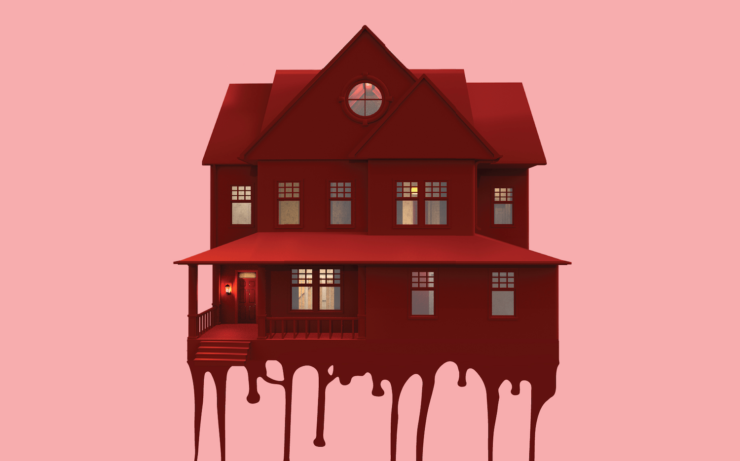I’ve lost track of the number of times the characters I write have been called unsympathetic. They have an apparently-unpalatable tendency to be emotional, selfish, illogical. They make choices that are motivated by fear and greed and pure unfettered impulse. They make bad choices and treat each other poorly and try to get away with things when it would probably be simpler to just fess up, or better yet, to make smarter choices.
When people describe these characters as unsympathetic, I start to wonder if maybe I don’t know what the word ‘sympathetic’ means. I don’t mean that in a sarcastic way—the functional meaning of a word is influenced heavily by popular usage. Pedantry can be a useful tool for self-soothing in an uncertain world, and I understand the urge to cling to it—but in practical terms, I don’t have much use for fussing over whether a word is being used incorrectly. I just want to understand what people are trying to communicate in a way that brings us as close as possible to mutual understanding.
So when someone says they can’t sympathize with a character who navigates the world in a fundamentally flawed way, I start to wonder if maybe there’s a comprehension gap on my part. I’d usually interpret a ‘sympathetic’ character to be a character people can identify with and understand—a character who is legible to readers, who comes across as realistic enough to elicit some degree of compassion, or at least recognition. Even when I’m wincing at a sympathetic character’s choices, some part of me is thinking: been there.
This is why I’m starting to wonder if I’m wrong about what a sympathetic character is. So the question that I get stuck on is, naturally: What do people mean when they talk about sympathetic characters?
Buy the Book


Just Like Home
My first impulse is to think that maybe people simply mean charming. I often write characters who have no interest in being charming, who are actively avoiding any semblance of charm, who aren’t looking to the reader for friendship. Vera Crowder, the protagonist of my newest book Just Like Home, is so afraid of what emotional intimacy might mean that she avoids forming meaningful friendships. I would think that this kind of trait would be resonant for many readers—but maybe resonant isn’t the same thing as sympathetic. Maybe there are parts of ourselves that we’d prefer not to see reflected and examined on the page, and so characters who act as mirrors at the wrong angles are unsympathetic.
But that answer seems too shallow. The specific ways in which people push back on my unsympathetic characters are not just about affection. I’ve been confronted several times by readers who are actively angry at my characters for making the wrong decisions, over and over again, and reaping consequences for those decisions. One person in a signing line confided in me that they enjoyed the book even though it was ‘riddled with plotholes’—the plotholes, they explained, being all the protagonists’ mistakes. They elaborated that she shouldn’t have done the things she did if she didn’t want to have so many problems.
That reader hung a lightbulb over my head and clicked it on. The question of sympathetic characters isn’t one of familiarity or relatability or affection—it’s a matter of instruction and admiration. A sympathetic character needs to be followable, emulatable, inspirational. Their choices need to offer some form of guidance to readers who want (as so many of us want) to know how to do the right thing in impossible circumstances. A sympathetic character needs to be a light in the darkness, showing the way to a more desirable destination than the one the reader is stuck in.
This, then, is the problem. My characters are almost never lights in the darkness. They’re just as stuck as the rest of us, groping frantically through the dark, hoping not to stumble into anything worse than what’s behind them, mistaking the occasional bioluminescent flicker of a cave worm’s glow for daylight. In Just Like Home, Vera Crowder is trying to decide if it’s best to simply embrace the darkness, because finding her way to the light has been so impossible for so long. If a character needs to be charming or instructive to be sympathetic, then Vera is the least sympathetic character I’ve ever written.
But if, in order to be sympathetic, she needs to be real—if she needs to be where so many of us have been in our lives, recognizably stuck, desperate to understand what it means to be a good person, battling the monsters in her head that tell her she’ll never find her way—then maybe I’ve finally done it.
Maybe in Vera, I’ve finally managed to write a sympathetic character after all.
Hugo Award-winning and bestselling author Sarah Gailey is the author of the novels The Echo Wife and Magic for Liars. Their nonfiction has been published by Mashable and The Boston Globe, and they won a Hugo Award for Best Fan Writer. Their fiction credits also include Vice and The Atlantic. Their debut novella, River of Teeth, was a 2018 finalist for both the Hugo and Nebula Awards.










